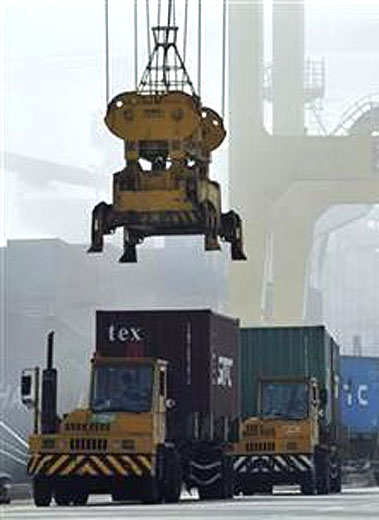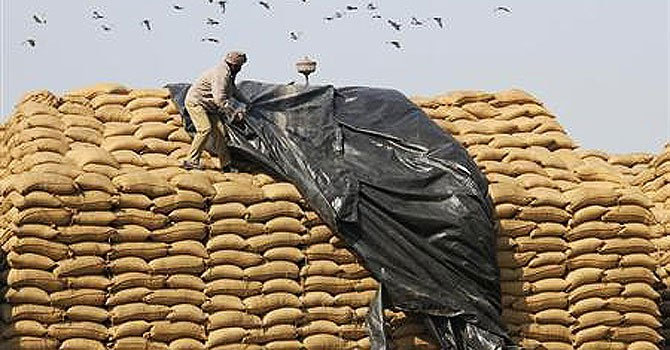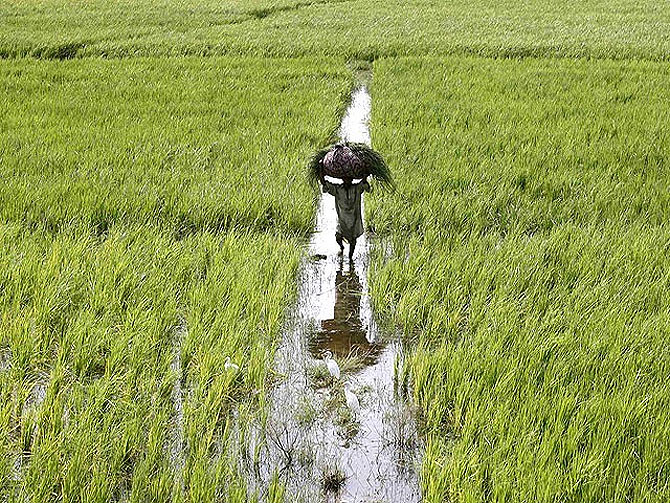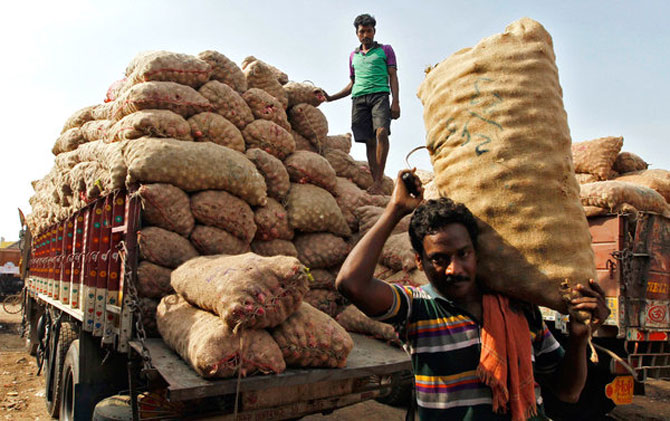 | « Back to article | Print this article |
Major trade deal fails; UPA's election tactics blamed
India may hold the key to the credibility of the World Trade Organization and to a trillion-dollar trade deal that apparently was derailed this week, diplomats in Geneva said on Tuesday.
WTO chief Roberto Azevedo said negotiations by ambassadors in Geneva had gone as far as they could. Specific difficulties and last-minute backtracking now can only be overcome by trade ministers at a biennial meeting on Dec 3-6, he said.
"If we are to get this deal over the line, it will need political engagement and political will," Azevedo told a meeting of WTO ambassadors.
U.S. Ambassador Michael Punke said that at 10 p.m. on Sunday he had been hopeful the WTO would clinch the first worldwide trade deal in its 18-year history. But last-minute problems arose that lasted until breakfast on Monday.
"By 7 a.m. Monday morning, it appeared that the deal was no more," Punke said, according to a transcript of his remarks at the meeting. "We're sceptical that those who appear to be refusing to reach agreement can now be convinced by another long night of negotiation."
Click on NEXT for more...
Major trade deal fails; UPA's election tactics blamed
Several diplomats leaving the meeting, asked who was to blame, mentioned India without being prompted. Others also named Venezuela, Bolivia and Cuba, but their objections had been maintained throughout. India had earlier won a large concession on agriculture but was said to suddenly turn into an obstacle, apparently to gain more in agriculture.
The bulk of the trade deal, supposedly the "low-hanging fruit" of the moribund Doha round of talks, is about streamlining customs procedures globally. But much of the negotiating time has been devoted to India's demand.
In a breakthrough the United States initially opposed, India won to the right to subsidise food and stockpile it in the name of food security, breaking the usual WTO rules on food subsidies.
Fulfilling an election promise made in 2009, India's coalition government this year expanded a welfare programme to give ultra-cheap food to about 800 million people. The Congress Party, which leads the government, has been stung by polls showing it may lose ground in the next general election.
Click on NEXT for more...
Major trade deal fails; UPA's election tactics blamed
Sinking ship
Diplomats at the WTO said they were not sure if India - and the other holdouts - wanted more concessions, were bent on preventing a deal or just wanted a chance for their ministers to make grandstanding demands in Bali.
"Some members just want this ship to sink. It's better that we fail in Geneva, and then the ministers won't have to fail," one ambassador said as he left the meeting.
Punke told the meeting that the "intransigent few" should not be rewarded with more concessions. Both he and India's ambassador to the WTO declined to comment after the meeting.
Several diplomats pointed out the risks in India's apparent tactics. The draft agreement protects India against a slew of trade disputes that could result in billions of dollars in trade sanctions. Under a compromise in the Bali text, India's laws would not be challenged for four years.
Click on NEXT for more...
Major trade deal fails; UPA's election tactics blamed
The Indian food-security law raises spending on food subsidies 45 per cent, to about $21 billion, up from about $14.4 billion in the current fiscal year. If the Bali deal fails, the additional subsidy would be illegal under existing WTO rules.
When it meets on Thursday, Prime Minister Manmohan Singh's cabinet is expected to mandate the negotiators to seek a deal in Bali that ensures India can run the food-subsidy programme without many restrictions, a senior official at India's trade ministry said.
The official, who declined to be named because of the sensitivity of the issue, said India was making all-out efforts to ensure a deal at Bali. He hinted that India was willing to cut import duty on some farm and industrial goods to ensure the deal, but gave no more details.
The International Chamber of Commerce says the Bali deal would add $960 billion to the world economy and create 21 million jobs, 18 million of them in developing countries.
Additional reporting by Frank Jack Daniel

© Copyright 2025 Reuters Limited. All rights reserved. Republication or redistribution of Reuters content, including by framing or similar means, is expressly prohibited without the prior written consent of Reuters. Reuters shall not be liable for any errors or delays in the content, or for any actions taken in reliance thereon.



